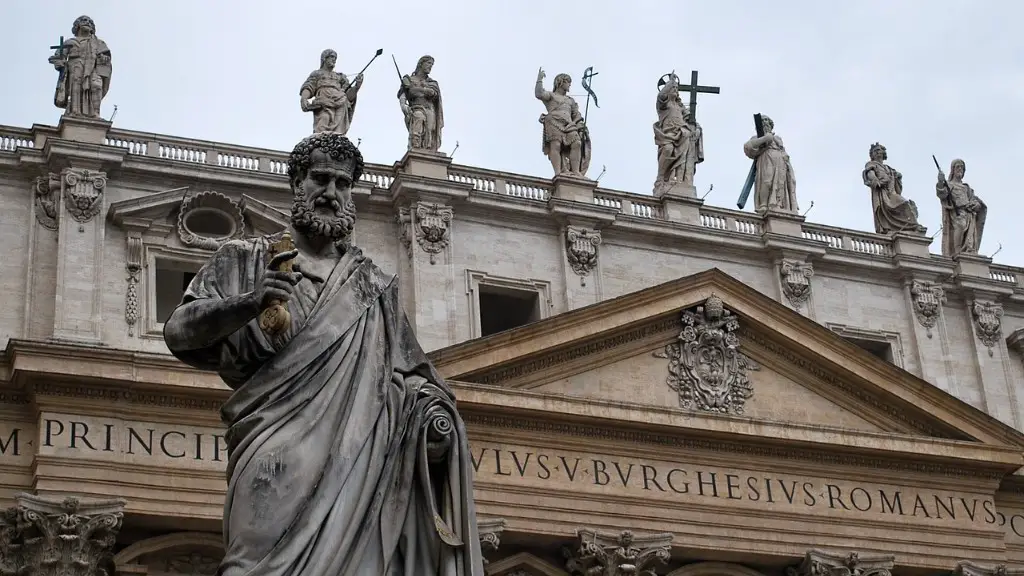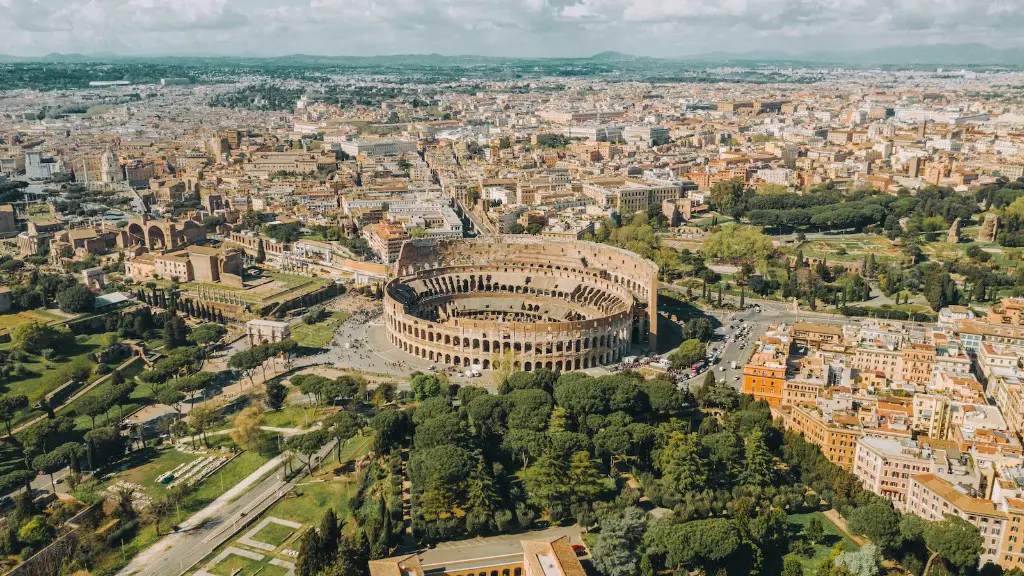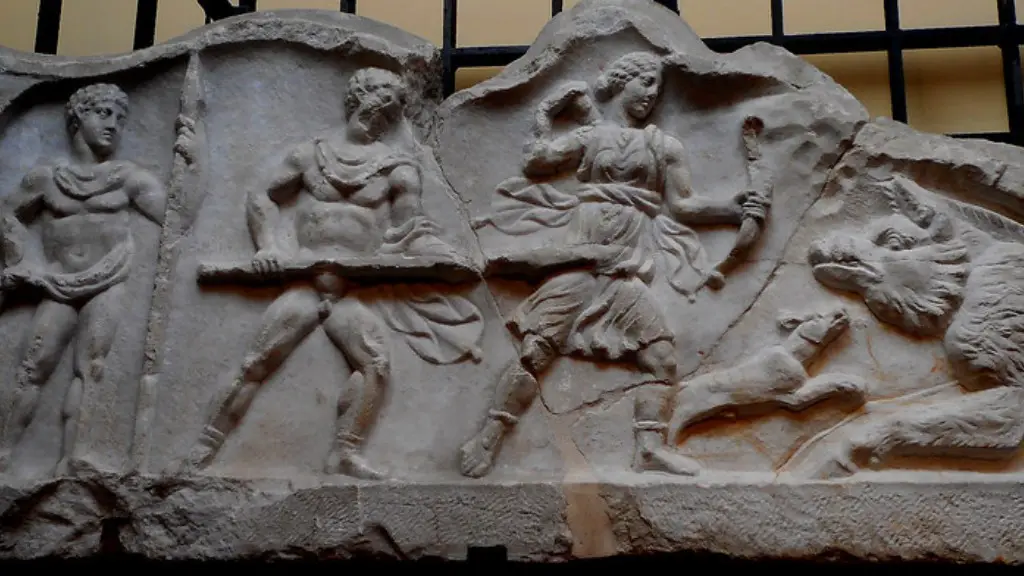The Origins of the Consul
The role of the consul in Ancient Rome was first established as part of the Republic’s government when it was founded in 509 BC. This important office was originally created to be the head of the political organs of the state. There were usually two consuls appointed each year and their primary responsibility was to advise the Senate and to consider laws and policies. The consuls had full authority to make decisions on behalf of the state, supported by the senate’s advice.
The Roles and Responsibilities of the Consul
The scope of the consul’s activities and responsibilities encompassed military and judicial duties, as well as the power to appoint magistrates and to ratify treaties. The consuls also had the power to call the Senate to a meeting and to lead it. All of the state’s legislative functions were performed by the Senate and the consul was the person responsible for ensuring that the Senate was adhering to its responsibilities.
The consul’s electoral term could be short, lasting only one year and could sometimes come to an abrupt end, especially if the consul failed to honourably terminate his terms through ill luck or lack of military success. This could lead to the consul being removed from office and replaced.
The Main Duties and Authorities of the Consulship
The two main duties and authorities of the consulship were:
- The nomination of magistrates to oversee the proceedings of state.
- The power to declare war.
The consuls also had the right to veto decisions made by the Roman Senate. The consulship was a relatively broad office and many of the consuls had their own views on how to run the state. Some saw their position as one of leadership, taking an active role in the decisions of the Senate, while others were content to simply obey the decisions of the Senate.
The Influence of the Consul Upon Rome’s Society
The social hierarchy in Ancient Rome was largely based on the roles and positions of the various offices within the government. The consuls were at the top of this hierarchy and held a considerable amount of authority over the lives of the Roman people. In some cases, the consuls had the power to decide upon the fate of Roman citizens, such as when they had to rule upon cases in the law courts. For example, during Julius Caesar’s time the consuls held the power over life and death, being able to decide on cases of capital punishment.
Symbols of Power and Identity
The consulship was a powerful symbol of the Roman Republic. It provided citizens with a sense of identity, unity and pride. The consuls were seen as excellent role models who represented the best of Roman culture.
The insignia and regalia associated with the consuls were symbols of their social and political power. The fasces, a bundle of elm rods bound with a crimson string was carried in procession by the consul as a sign of their office and their power. It was a symbol of unity and strength and was used as a symbol of justice as it was often present in the Roman courtroom.
The End of the Consulship
The Republic was ended in 27BC by the first emperor Augustus, after he was granted supreme powers following his defeat of Antony and Cleopatra. The consulship was abolished and magistrates were appointed by the emperor that held similar roles to those of the former consuls.
The Emperor Augustus played a crucial role in transforming the political landscape in Rome and replacing the Republic with his own imperial system. He established a structure of imperial rule that was based upon the existing structure of the Roman Republic and modified it to fit his own needs.
The Legacy of the Consulship in Rome
The ancient Roman consulship provided an invaluable lesson in good governance and leadership that has been echoed throughout the centuries and is still relevant today. Many of the principles that were established during the early years of the Republic, such as the importance of having a strong executive leader, are still present in modern governments and societies.
The consuls of Rome remain a significant symbol in the history of the city and their importance in both the Ancient and the modern world cannot be underestimated. They were the guardians of the Republic and their role as powerful leaders within the government ensured the longevity and success of the state.
The Role of Martial Discipline Under the Consulship
The Roman consul was also a symbol of military discipline and as such was often expected to lead troops into battle. The consuls would often receive military decorations and laurel wreaths for their victorious campaigns and their bravery was respected by all.
The military discipline of the Roman Republic was a major key in its success. This was maintained through adherence to strict regulations which were implemented by the consuls, such as the provisions of the Lex Militaris. This established standards of behaviour and a code of conduct for the soldiers and ensured that they followed orders and performed their duties with honour.
Censorship and Surveillance
The role of the consuls in maintaining control over civil and military affairs led to the implementation of strict censorship and surveillance throughout the Roman Empire. This included a ban on the use of certain literature, such as the works of Cicero, as well as close monitoring of political meetings and assemblies.
The consuls were also in charge of keeping tabs on any potential plots and conspiracies against the state and were known for their ruthless pursuit of suspected enemies of the state. This could lead to harsh sentences such as death or exile being handed out to those who were found guilty.
In Conclusion
The role of the consul in Ancient Rome was integral to the success of the state and its government. It was an influential office that provided citizens with a sense of identity, unity and pride. The consuls had a wide range of responsibilities, such as the nomination of magistrates and the power to declare war, as well as the power to veto decisions made by the Senate.
The power held by the consuls was both respected and feared, as the consuls were in charge of holding the balance of power between the senate and the people. They were also expected to maintain strict military discipline and had the power to impose censorship and surveillance on any suspected conspiracies against the state.
The legacy of the consulship is still felt throughout the centuries and its importance in both the Ancient and the modern world cannot be underestimated. The importance of having good governance and strong leadership is still one of the main lessons that we can take away from the Ancient Roman consulship.


